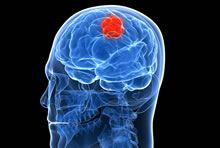Tumors: what are the most common false beliefs?
When dealing with cancer topic, it is good to have correct information, otherwise you risk transmitting unnecessary anxieties and induce incorrect behavior. Various false beliefs circulate on the origin of different types of cancer, such as breast or ovarian cancer, as well as on any beneficial effects of feeding or damage caused by technological. Most of these beliefs do not have scientific databases.
Incorrect is to believe that cancer is contagious. There is an ’ exception linked to transplants: some patients who have undergone an organ transplant from a cancer sick donor, have developed an oncological disease 1 . The tumor, sometimes, can originate from viruses, such as HPV, but it is this virus that is contagious and not neoplasm.
Incorrect is to associate the development of breast tumors with anti-transpirerating deodorants use. The research conducted highlighted how relationships between breast cancer development and use of these cosmetics 2 exist .
False myths are generated by familiarity with tumors. It is wrong to think that those who have cancer patients will develop the same disease. Although some types of cancer can lead to the#8217;heredity (5-10% of cases of breast cancer are hereditary and connected to alterations of the BRCA genes 3,4), this does not mean that a tumor will develop. D ’ another song not being a familiarity with tumors, does not start following a prevention path anyway.
It is wrong to believe that surgical operations facilitate the spread of tumors and this is due to those cases in which following an intervention, the cancer patient had metastases or neoplasms in other points. This can happen if the tumor is not completely removed or if, during the intervention, it turns out that the neoplasm is more extensive than expected.
Incorrect is to associate the onset of tumors with the use of mobile phones. Research highlighted how there are no relationship between tumors and electromagnetic waves from cell phones, power lines, appliances 5 .
It is always recommended to ask the specialist doctor on what concerns prevention, information and clarifications on tumors.
